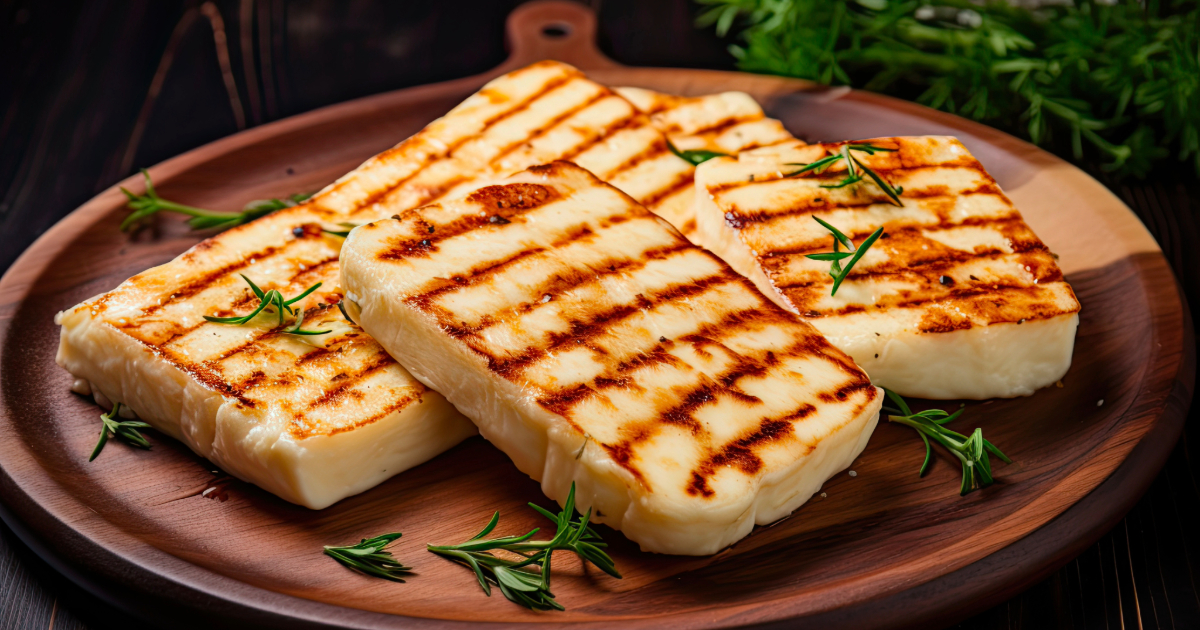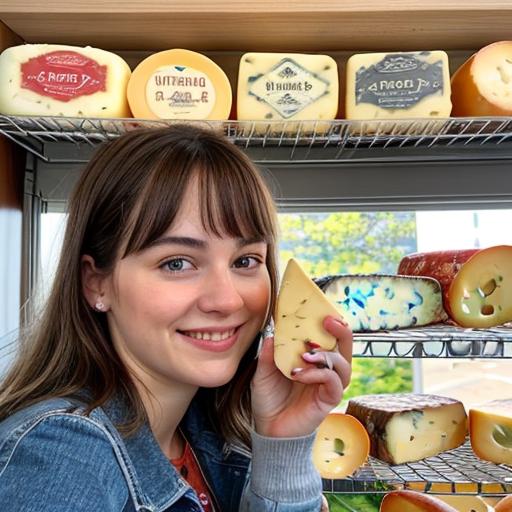Paneer and halloumi are two popular types of cheese that are often used in cooking.

While they share some similarities, there are also some key differences between the two.
Understanding Paneer
Paneer is a fresh, unaged cheese common in Indian cuisine. It has a crumbly texture and mild, milky flavor.
- Origin: Paneer traces its origins back over 2,000 years to ancient India. While the exact origins are uncertain, paneer is believed to have started during the Mughal era in India.
- Making Process: Paneer is made by curdling milk with an acid like lemon juice or vinegar. The curds are strained and pressed to form the crumbly cheese. It's a simple, DIY cheese requiring just a few basic ingredients.
- Taste: Paneer has a mild, fresh dairy taste. It has a soft and crumbly texture that allows it to absorb spices and flavors easily.
- Uses: Paneer is very versatile in cooking. It is widely used in curries, salads, wraps, kebabs, and even some desserts. It retains its shape when cooked making it perfect for frying, grilling or adding to saucy curries.
Understanding Halloumi
Halloumi is a semi-hard, brined cheese originating from Cyprus. It's made using a mixture of goat and sheep's milk.
- Origin: Halloumi has a long history spanning over 500 years in Cypriot culture. However, its exact origins are unknown with some believing it was introduced to Cyprus by Arab invaders in the medieval era.
- Making Process: Traditional halloumi is made by heating and culturing a mixture of sheep and goat's milk. The curds are shaped, before undergoing a second heating to give halloumi its distinct texture. It is then brined to add flavor.
- Taste: Halloumi has a salty, tangy flavor and chewy, rubbery texture. It has a high melting point so maintains its shape when cooked.
- Uses: The fact that it doesn't melt makes halloumi perfect for grilling, frying, or adding to sandwiches and salads. Its salty taste also helps enhance other ingredients.
Key Takeaway: Paneer originates from India, while halloumi is traditional to Cyprus. Both are made by curdling milk and shaping the curds to form a cheese.
Comparing Textures
The textures of paneer and halloumi differ quite significantly:
Paneer has a soft, crumbly texture. It's easy to break apart and almost completely smooth on the inside. Paneer easily melts when heated becoming soft and gooey.
Halloumi has a much more rubbery, chewy texture. It holds its shape well and resists melting when cooked. The inside tends to still be slightly springy. This allows halloumi to be fried or grilled without losing structural integrity.
So paneer offers more of a soft, delicate mouthfeel that melts away. Halloumi is chewier with a distinctive springy bite.
Comparing Flavors
While paneer and halloumi can both make excellent additions to recipes, their flavors are quite different:
Paneer has a very mild and creamy taste. It has a fresh dairy flavor with subtle notes of citrus from the curdling process. The mild taste means paneer easily absorbs other strong spices and flavors in Indian curries and dishes.
Halloumi is much saltier and tangier in taste. It has more of a salty briny quality along with hints of goat and sheep milk. The salty, robust flavor allows halloumi to hold its own when cooked. It doesn't get overpowered by chillies, herbs or other ingredients.
So paneer offers a blank canvas while halloumi provides more of its own distinctive tangy, salty flavor.
Key Takeaway: Paneer has a delicate, milky taste that absorbs flavors easily. Halloumi is more salty and sour, with a tangy goat's milk quality.
Nutrition & Health Benefits
Looking at nutritional content and potential benefits:
Paneer is an excellent source of protein and calcium. 100g contains over 20g protein to support muscles and over 25% RDI calcium for strong bones and teeth. Paneer also contains a decent amount of healthy fats.
Research shows paneer could help reduce inflammation in the body and lower blood pressure levels.
Halloumi provides high amounts of protein and calcium too. It also contains valuable protective fatty acids including omega-3. Studies link omega-3 intake with improved heart health and better brain function.
However, halloumi contains much higher sodium levels than paneer, with over 20 times as much salt. This could negatively impact blood pressure.
So for nutritional value, paneer may have an edge over halloumi for some people. But both offer useful probiotics and nutrients.
FAQs
Can you grill paneer like halloumi?
Yes, paneer can be grilled in the same way as halloumi. Make sure to marinade the paneer first to add lots of flavor. The paneer will soften over the grill but won't melt entirely like halloumi. Grilled paneer makes an excellent addition to salads or curries.
Which cheese is healthier: paneer or halloumi?
Paneer is often considered the healthier option mostly due to its lower sodium content. Per 100g, paneer contains only 227mg sodium versus halloumi containing a high 1,250mg sodium. Too much sodium can negatively impact heart health and blood pressure. Both cheeses though do provide valuable nutrients.
What's a good substitute for paneer or halloumi?
Common substitutions for paneer include extra-firm tofu, pressed cottage cheese or mozzarella. Replacements for halloumi include Indian paneer, queso fresco or feta cheese. While the textures might not be exactly the same, these subs work well in cooked dishes.
Can you make saag paneer using halloumi?
Yes! You can absolutely use halloumi as a substitute for paneer in saag paneer. Make sure to adjust any added salt in the recipe keeping in mind halloumi has a much saltier flavor already. The spinach in saag helps balance out the salty taste too. Just remember halloumi won't absorb the spices quite as well as paneer normally would.
Is one cheese better than the other?
It depends on the dish and your personal tastes. Paneer is more suitable for absorbing rich sauces and spices in Indian curries. Halloumi stands up better to bold flavors in Mediterranean or Middle Eastern dishes. In terms of health impacts, paneer may have an edge thanks to its lower sodium. But both have valuable nutritional benefits so consider your needs.
Conclusion
Paneer and halloumi share some common traits being milk-based cheeses with high protein.
For health, paneer contains less sodium and may benefit heart health more. But both provide useful nutrients like calcium, protein and probiotics.
So the type of cheese depends on the cooking application and your nutritional needs. Paneer offers a delicate flavor and soft texture for curries. Halloumi is perfect for robust seasoned dishes and grilling.

